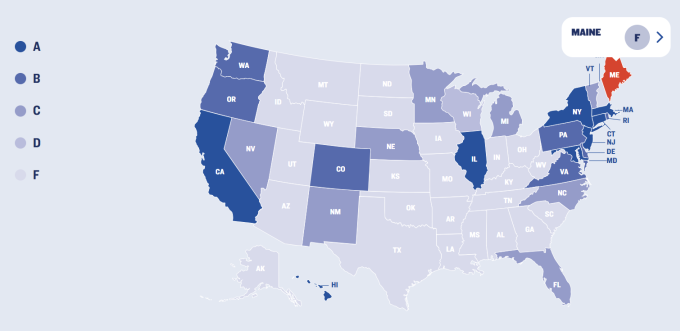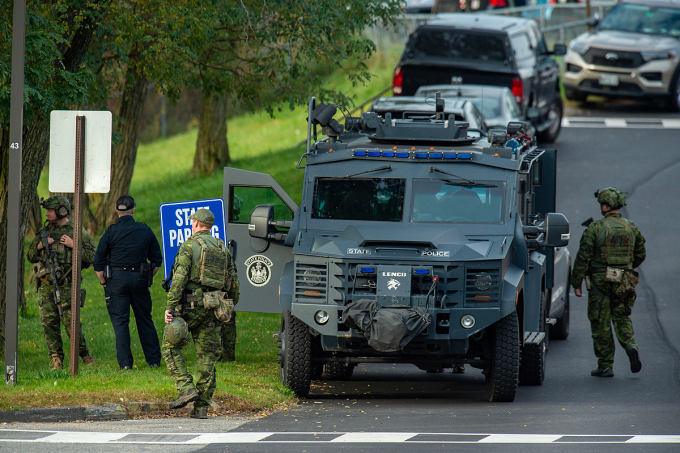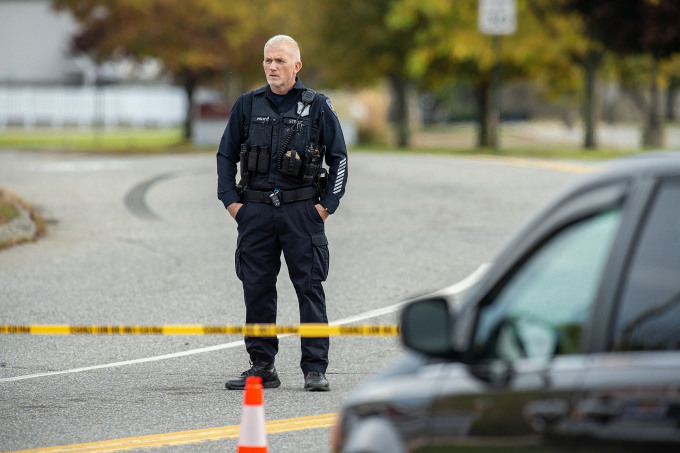Maine has a long-standing gun culture, deeply rooted in hunting and sport shooting. This gun culture is so pervasive that officials do not require gun-carrying licenses, do not conduct background checks on gun buyers, and do not have a law that allows family members to petition the courts to take away guns from someone at high risk of committing a crime.
“The state of Maine also does not ban assault rifles or extended magazines,” said Allison Anderman, senior public policy counsel at the Giffords Law Center to Prevent Gun Violence, a national public interest law center and nonprofit that promotes gun control laws in the United States and brings lawsuits against the gun industry.
Several bills have been proposed by Maine lawmakers to require background checks on gun buyers and ban high-capacity magazines, but none have been passed by the state legislature due to opposition from the public and lawmakers.
Maine law states that "every citizen has the right to bear arms without question." This is one of the reasons the Giffords Center gave Maine an "F," the lowest grade on a five-point scale for gun control in the United States.

The state of Maine (orange) and the Giffords Center's gun control capacity assessment of US states. Graphics: Giffords Law
Maine residents over the age of 21 are allowed to carry a concealed handgun, with the age reduced to 18 for those serving in the US military or National Guard.
Robert Card, the Lewiston, Maine, shooting suspect, was a reserve sergeant in the U.S. Army in Saco. According to his family, he had mental health issues, had talked about “voices in his head” and had threatened to shoot at the Saco base. However, he was still legally allowed to own a gun and regularly practiced shooting.
Katie Card, Robert Card's sister-in-law, said on October 26 that a few months ago, while in the process of getting hearing aids fitted for severe hearing loss caused by frequent shootings, Card began hearing voices in his head saying "terrible things" about him.
"He heard voices he had never heard before. Robert's mind was racing. He felt violated by those words," Katie said.
The family tried to reassure Robert Card, but he believed everyone was suddenly against him. "It turned into a crazy belief," Katie said.
Maine law only prohibits people under 18 from purchasing guns. People with criminal records, medical conditions, or substance abuse are only prohibited from purchasing and possessing guns if they are judged unfit. People with mental health problems are only prohibited from owning guns if doctors conclude that they “have a potential to cause serious harm.”
There is no information on any hospital or military psychological evaluations of Card, although he was admitted to a mental health facility for two weeks this summer.

Law enforcement officers search for a shooting suspect in Lewiston, Maine on October 26. Photo: AFP
Many states in the US have "red flag" laws, which allow family members, law enforcement, teachers and designated individuals to petition a court to confiscate someone's guns when they determine that person is a threat to themselves or others.
But after years of gun control advocacy, Maine passed a "yellow flag" law in 2019 that only allows law enforcement to file a petition, after a mandatory medical examination.
It is unclear whether any law enforcement officers were enforcing the "yellow flag" law in Robert Card's case.
"The yellow flag law should have been activated while the suspect was in a psychiatric hospital," said Republican Sen. Susan Collins. "Card should have been stripped of his gun rights."

US police block off a street in Lewitson, Maine, on October 26. Photo: AFP
But under Maine state law, to prohibit someone who has been in a mental hospital from possessing a gun, a court order of "involuntary hospitalization" is required.
A judge would need to approve the order, which would then be sent to a background check system at licensed gun dealers. When someone comes to buy a gun, the store owner can deny the sale if they determine the customer is in the system.
But the system has been criticized for its shortcomings. Authorities may not be able to provide information quickly enough to be sent to the system. Even when information is in the system, gun shop owners are not required to check it.
“People with dangerous histories can get guns too easily,” said Lindsay Nichols, policy director of the Giffords Center.
The October 25 shooting has prompted many Maine officials and lawmakers to reconsider the state’s gun control laws. Maine Representative Jared Golden said he changed his views on gun ownership after the massacre in his hometown.
Golden, a veteran who has served three terms as a senator representing Maine’s 2nd congressional district and will be up for reelection next year, has repeatedly opposed Democratic gun control efforts. Golden was one of five Democrats who opposed legislation to ban assault rifles in the House in 2022.
But now, as his hometown of Lewiston is locked down in a manhunt for the shooter, Golden expressed regret. "I ask the people of Lewiston, the families of the victims and those who have been harmed to forgive me and help me put an end to these terrible shootings."
Duc Trung (According to AP, ABC News, NY Post )
Source link






















![[Photo] Signing of cooperation between ministries, branches and localities of Vietnam and Senegal](https://vphoto.vietnam.vn/thumb/1200x675/vietnam/resource/IMAGE/2025/7/24/6147c654b0ae4f2793188e982e272651)

















































































Comment (0)